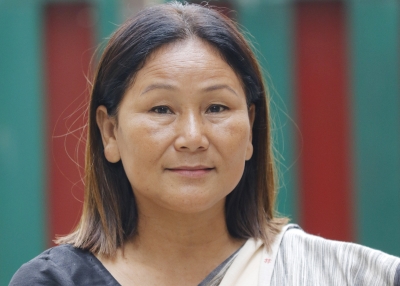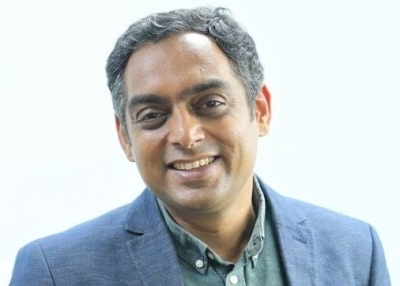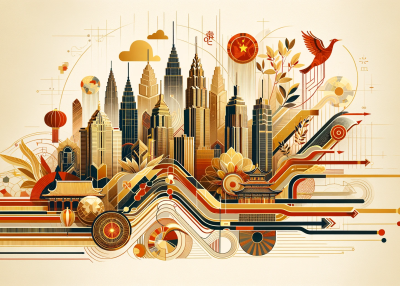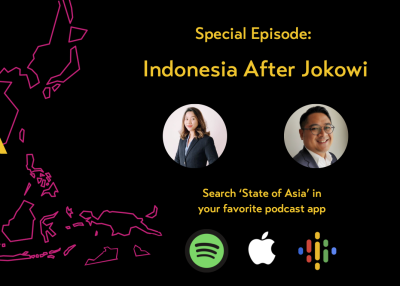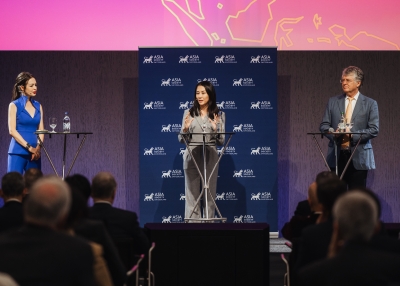State of Asia with Alicia García Herrero
On why India is not the next China
GUEST ON THIS EPISODE

Alicia García Herrero is Chief Economist for Asia Pacific at Natixis, Senior Fellow at European think-tank BRUEGEL, and non-resident Research Fellow at Madrid-based political think tank Real Instituto Elcano. She is currently Adjunct Professor at the Hong Kong University of Science and Technology and member of the advisory board of Berlin-based China think-tank MERICS. Finally, Alicia is advisor to the Hong Kong Monetary Authority’s research arm (HKIMR) and the Asian Development Bank (ADB) as well as a member of the board of the Hong Kong Forum and co-founder of Bright Hong Kong.
Alicia holds a PhD in Economics from George Washington University and has published extensively in refereed journals and books. Alicia is also very active in international media (Bloomberg and CNBC among others), on Substack, as well as social media (LinkedIn, X, and Weibo). As recognition of her thought leadership, Alicia has been nominated TOP Voices in Economy and Finance by LinkedIn.
STATE OF ASIA podcast
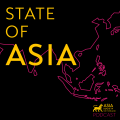
Season 6, Episode 6 – published June 11, 2024
Host: Nico Luchsinger, Executive Director, Asia Society Switzerland
Editor/Producer: Remko Tanis, Programs and Editorial Manager, Asia Society Switzerland
Find previous and future episodes here, on Spotify, Apple Podcasts, Google Podcasts, or search for 'State of Asia' in any other podcast app. We're also on YouTube.
Transcript
00:00:03 Nico Luchsinger
From Asia Society Switzerland, this is State of Asia. My name is Nico Luchsinger.
00:00:10 Nico Luchsinger
A question that has been around for a while now, but has come into sharp focus I think maybe last year, is whether India's economy can follow a similar path as the Chinese economy and on the face of it, it seems obvious, right? India right now has about the same population.
00:00:26 Nico Luchsinger
But while China's population has started to shrink, the Indian population is still relatively young and growing. India's economy is still only 1/5 of the Chinese economy, but has already overtaken in size the UK, France, Italy and Brazil, and it's expected to overtake Japan soon, too. And Indian officials will often point out that if companies are pursuing a
00:00:47 Nico Luchsinger
China plus one strategy, India really is the only plus one that has the required size for that. But there is nothing inevitable about economic development.
00:00:55 Nico Luchsinger
India is politically, culturally, geographically very, very different from China and there already have been times in the past where its economy was expected to take off only to lose its momentum shortly after.
00:01:08 Nico Luchsinger
Alicia García Herrero is the chief economist at French investment bank Natixis and a senior fellow at the Breugel think tank. She's based in Hong Kong, and she has been following the economies of both India and China for a long time and has written about both extensively. She joins me today on the State of Asia to discuss the
00:01:25 Nico Luchsinger
possible trajectories for both economies.
00:01:27 Nico Luchsinger
Alicia, welcome to the podcast.
00:01:29 Alicia García Herrero
It's really a pleasure to be here with you, Nico.
00:01:32 Nico Luchsinger
In a recent op-ed, you seemed quite optimistic about the potential of India's economy being able to catch up to China. But you also noted that in the early 90s, the Indian and Chinese economies were actually not that far apart. I ran the numbers. China proceeded to have a compound annual growth rate of over 12% since then, and India's economy only grew by about 7%.
00:01:52 Nico Luchsinger
Really looking at the history, what were the key reasons for this difference? Was it something specific that India did wrong or were
00:02:00 Nico Luchsinger
fundamentals in India just never such that it would have been possible at all to follow the Chinese path at the same time?
00:02:06 Alicia García Herrero
Great question. So why didn't India become China and then we can talk about whether India can indeed become China. But to start, of course, the past can give us some hints and I'd like to say that we could also look at 1950. I mean, the economies were the same and if anything, China had done worse. So, we could go really far behind and we would find that it was not always the case that China did better.
00:02:28 Alicia García Herrero
But let's focus on the period where China did really much better and that's opening up and reform and opening up beyond the obvious, which is reform and open
00:02:38 Alicia García Herrero
enough which India didn't do. India was much more of a state-driven economy at that time than China was. China flirted with the central planning, but in reality, it was in a liberalization mode. And I think India took much longer and it's still, I mean, still the role of the state is still extremely important.
00:02:58 Alicia García Herrero
The banks are still state-owned.
00:03:00 Alicia García Herrero
We think these are very different economies, but in that regard, I mean the importance of planning, I would say that it's not so different. The question is how you plan and I think China was smarter in the way they planned, what they planned was liberalization and the reform was quite basically saddled with bad debt.
00:03:20 Alicia García Herrero
Whether it was in the banks or the state-owned enterprises
00:03:24 Alicia García Herrero
which were creating the jobs and therefore it was very hard to move away from that model. But you know, China decided to do so and that is the beginning of freeing of resources. So, China managed to free resources much earlier. The other big difference and this has really very little to do possibly
00:03:44 Alicia García Herrero
with economic model, but mostly with maybe Confucian values, because this is true for South Korea, for Japan, for Taiwan, for China,
00:03:52 Alicia García Herrero
is the high saving ratio, so the high saving ratio has the plus and minus. China is now seeing the minus. I have been doing some work comparing Japan in the 80s and China today just to see whether China will end up like Japan. The usual question. I was like wow, you know, taking it back to see that China’s saving ratio was
00:04:12 Alicia García Herrero
so much higher than Japan in the 80s.
00:04:14 Alicia García Herrero
So, China is really an outlier, even within these Confucian countries. That's a plus. When you start your development that India doesn't have. So, India really has to sweat its way out if I may say so, to develop infrastructure. Why? Because it needs to deploy all of its savings and no doubt
00:04:34 Alicia García Herrero
take savings from the rest of the world because
00:04:37 Alicia García Herrero
its own savings are not enough to embark in in a huge revamp of infrastructure, which is needed for manufacturing or even service economy. I mean, they need it for anything they want to do. China didn't need to rely on the rest of the world for savings, although in a way it still needed to rely on the rest of world for technology.
00:04:57 Alicia García Herrero
Which India also has to do.
00:04:59 Alicia García Herrero
But it was not asking for two things. Funding and technology, only technology. It's very different proposition. And by the way, China was more able to offer the market. Why? Because big difference, the saving, the other difference is reform and opening up. Yeah. And I'm going to make the point that in
00:05:19 Alicia García Herrero
specific terms, the opening up that China embarked on was very much
00:05:24 Alicia García Herrero
lowering import tariffs. I mean much more than India, which has huge number of exceptions. So, for India, if anything you want to import as an input to production, it's just too expensive. China realized if I want to be a manufacturing platform, I need to lower my import tariffs, which they did as part of the reform and opening up. And that was a huge success.
00:05:44 Alicia García Herrero
Because that made production in China very cheap. It's not only about labor costs, it's about imports, especially when you are still at the infancy of becoming a supply chain or, you know, having enough manufacturing.
00:05:58 Nico Luchsinger
What I hear is there's a number of points, but maybe we can focus on three things. So, one thing that China did better was really kind of all about the reforms. So basically policy, but then you mentioned the savings rate which you said China is just an outlier. It would be very, very hard for India or really any other country to just replicate that. So, I'd have to go down a different route. And then the last one,
00:06:18 Nico Luchsinger
import tariffs, which very much is something that the country can influence.
00:06:21 Nico Luchsinger
If we look at these three factors and now sort of from the historical perspective, try to look forward, to which extent have these fundamentals changed in a way that would make the potential for India higher than it turned out to be back in the 90s? Is there something that's changed now that makes it more likely that India can become the next China as you put it in the very beginning?
00:06:43 Alicia García Herrero
I think India hasn't really lowered import tariffs because there hasn't been any major trade agreement as you know, and this is one of the things that people criticized about India, no major trade agreement, whether it's ourself or anything else that India has embarked on.
00:06:59 Alicia García Herrero
So first one, like making it cheaper to import. The answer is no and I think this is a big problem and if you tell me if there's one thing that the Modi administration hasn't really delivered, that's job creation, especially in the manufacturing sector and even inward FDI in manufacturing is really poor. So, you can see the relation between
00:07:20 Alicia García Herrero
not moving ahead in lowering tariffs, import tariffs and
00:07:24 Alicia García Herrero
lack of FDI in manufacturing and lack of job creation in manufacturing, which happens to be the most productive, especially for an economy like India, much more than agriculture or even low-end services. So that's the problem. Now what about the other reforms? I mean, if we look at reform and opening up and we focus mostly on
00:07:44 Alicia García Herrero
reforms, not on the trade liberalism,
00:07:46 Alicia García Herrero
which I think their model has done quite a lot, basically moving away from pure cash economy and increasing deposits in banks using basically the yes lower savings agreed and deployed before Modi. Yes, they weren't really deployed. Now I think the capacity of banks to
00:08:06 Alicia García Herrero
engage and we see most of what has happened on the infra front is really
00:08:11 Alicia García Herrero
public private partnerships, but it's basically the government plus the banks and the banks just have more capacity because people are now in the banking sector. The money is intermediated and that's very important. And there's a number of other reforms. But I would say that Modi has, I would give them a decent report card on reforms.
00:08:31 Alicia García Herrero
Not as much as I said on trade liberalization. So that's the difference.
00:08:34 Alicia García Herrero
Now on savings been a little bit better partially because of what I just said, the intermediation of savings people just can save and that makes a difference. So the current account deficit for India has been much more contained than before Modi. We all have to remember 2013, that crisis
00:08:54 Alicia García Herrero
that hit the so-called tantrum.
00:08:57 Alicia García Herrero
Hit India quite dearly. The twin deficit fiscal current account deficit. So, all of that is kind of passed and that's big for a country like India. So, I would say that not everything is there, but India is changing and finally the world is changing. That's the key point. Once upon a time in the 80s, nineties having a lot of savings.
00:09:17 Alicia García Herrero
Attracting FDI? Just manufacture
00:09:19 Alicia García Herrero
was the way forward, but now there's other ways forward. We have AI, we have digital services, so it is not necessarily fully clear to me that China's model is the model in the current decade. This is the big question mark. Should India imitate China? Full stop? Maybe not. Maybe not.
00:09:39 Alicia García Herrero
There's a very influential article by Rajan on Project Syndicate.
00:09:44 Alicia García Herrero
Came out where he makes that point that what India really needs is an education reform. So really basically leveraging on its people more than on the ability to produce stuff because he worries that might never be very easy for India. I actually tend to think that manufacturing is important because at the end of the day, no country I know of has
00:10:04 Alicia García Herrero
ever developed without manufacturing. Because India is a big country.
00:10:08 Alicia García Herrero
And, you know, importing everything India needs, it's just like mind boggling to me. But I do buy the point that we are in a different in a different world, trading services is growing literally 3-4 times faster than trading goods. So, we need to realize that.
00:10:22 Nico Luchsinger
So, there's a few factors that are maybe different today. One of the things that a lot of people point out is that one of the advantages that China has had, and in a way maybe still has, is that it has a different political system.
00:10:34 Nico Luchsinger
It's a much more autocratic system, which means that it could take sweeping decisions that relate to the economy much more easily. Worse, in India, which is democracies, the things have to be negotiated and the different political factors and that just kind of slows the whole process down. Is that true?
00:10:50 Alicia García Herrero
Frankly, China is not a democracy and China has grown average 12%, but is no longer growing average 12%. And you may say it has nothing to do with this political system. It's just because China is now
00:11:01 Alicia García Herrero
rich, maybe yes, maybe no. You know that we don't really know. I mean like, how much is the same system perhaps being run different. And this the same thing applies to India, the same quote unquote chaotic election is now read more positively, isn't it? I mean, it's very funny because just because Modi was there for two terms and people are reading these
00:11:22 Alicia García Herrero
elections, as if they were working very well and if you just were to read about these elections 15 years ago or 10 years ago, actually we tend to have a lot of a priori
00:11:32 Alicia García Herrero
on this, you know, like, because a country that we know well with whatever political system seems to work, we just generalize this for everybody else. And as you said, this is just maybe not the way forward the way forward is how well I mean within whatever regime you may have or choose, sometimes you can't choose, how do you run it.
00:11:53 Alicia García Herrero
And I think there is some improvement in the way India has been run in terms of the first of all, because Modi and this might change after these elections, we are not sure how powerful Modi will end up being. I mean, even for democracies, it's a question of power within being in charge. But with how much power?
00:12:11 Alicia García Herrero
And in terms of, I think, autocracies is more about is it too much power, you know so it's kind of the balance may be tilting of course for Modi some say maybe it might be better that he doesn't get so much power in this election. So we might be tilting already to that kind of thinking of autocracies as they work as long as there is some
00:12:31 Alicia García Herrero
you know te peer pressure, if I may say so, to make it work. And when we go beyond the problems start.
00:12:37 Alicia García Herrero
So, I would say that we would have to focus in my view, I mean I'm at the end of the day and economist in how things are done rather than the political system itself to judge the future of these economies.
00:12:48 Nico Luchsinger
Right. So maybe another thing that's different is that China grew and developed its economy at a time when also globalization was expanding quite rapidly, which meant that China could build a lot of these supply chains and be at the center of a lot of these supply chains that simply weren't there.
00:13:04 Nico Luchsinger
For now, for India, it's kind of different, right? It's much more a substitution process where part of the supply chain, part of the work that used to be done in China ideally would move to India. That seems a lot harder to do. So how would that factor in the fact that's just China's success was also due to it coming at a very specific moment, sort of in history. And that moment has passed.
00:13:25 Nico Luchsinger
So how would you
00:13:25 Nico Luchsinger
look at this effect of actually building supply chain versus substituting one that's already there?
00:13:30 Alicia García Herrero
Totally. So, this is why I think you know the idea of just replicating China is something that I don't actually think Modi believes in, to be frank. But some people do.
00:13:41 Alicia García Herrero
You kind of just make it very simple, you know, like you are the only country with the same labor supply and then you can do the same. Yeah. I mean, you can have infinite supply of labor that keeps your wages low. I mean, this makes no sense. Firstly, because as you said, India is a democracy.
00:14:01 Alicia García Herrero
With, by the way, trade unions, which China hasn't had for in a way, it still doesn't have what it is and not realistically speaking. And that's just not comparable. But the most important thing is because the world doesn't want to replicate the same process
00:14:17 Alicia García Herrero
that it went through in the 80s and 90s, it just doesn't want it. We are going towards restoring no matter the cost. Look at the US. So of course, India shouldn't think of becoming the processing platform of the world as China started being then China moved up the ladder. So, I guess what,
00:14:37 Alicia García Herrero
really, India wants to do is to create a supply chain for its own needs, and perhaps you know, you can think of a South Asia supply chain,
00:14:44 Alicia García Herrero
which makes a lot of sense because South Asia is basically the fulcrum of the population growth in the world. Yeah, I mean, that's where the population is going to grow. So, you don't need to think globally, you may only need to think regionally and for India to have a successful model of us and integrate the supply chain.
00:15:02 Nico Luchsinger
Another thing that's very different, of course, and that sort of may help the substitution effect, is that a lot of people, a lot of companies, are very actively looking for a replacement of China, right?
00:15:13 Nico Luchsinger
So, this is China plus one strategy that many companies are pursuing that many governments want their companies to do.
00:15:20 Nico Luchsinger
I sometimes argue that India sort of is in a geopolitical sweet spot, right, and that it can leverage sort of the geopolitical tension for its own economic gain. So, while the supply chains are already established and substitution is different and you know, you argue, India should focus on the region, does this geopolitical sweet spot it's in, right? This is also something
00:15:40 Nico Luchsinger
that would help it attract the foreign direct investment that at the very beginning of this conversation you said it would need because it's actually not going to be possible to build the infrastructure it needs for growth just from its own savings.
00:15:52 Alicia García Herrero
So, this is the positive out of the negative, the negative is we are in globalization at least if not deglobalization. That's what we are finding, but within
00:16:01 Alicia García Herrero
that, because not every country can just reassure everything they produce, they need near shoring. They need friendshoring. They need, you know, they need somebody. I think India is so well-placed because it's orthogonal to China in at least politically, geopolitically, etcetera. So, it is hard to find a country, and this is not
00:16:20 Alicia García Herrero
only about size,
00:16:21 Alicia García Herrero
where you have no doubt that it's not going to
00:16:24 Alicia García Herrero
belong to China's ecosystem. Think about TikTok banned, long time ago, or many other things. Yeah, I mean BYD, who wants you for? I mean, like, it's unbelievable. It's much faster than the West. Yes, China is India's largest trading partner on the import side because at the end of the day, India doesn't have the capacity yet. But the direction is clear.
00:16:44 Alicia García Herrero
It won't be so in that regard. If you want to create a different ecosystem or push some friendsharing within yours that say that
00:16:53 Alicia García Herrero
yes, India is key. So, this is why I think within the negative aspects of socialization, India is still a relative winner for this reason and this is what's driving a lot of the inflows from their investment into India. The idea of that orthogonality to China.
00:17:11 Nico Luchsinger
We are recording this before the results of the Indian elections are announced, but it's very likely that by the time you hear this, it's clear that we'll have a third term for Prime Minister Narendra Modi and his government. So, Alicia, if you were an economic adviser to Narendra Modi
00:17:27 Nico Luchsinger
what are the two or three economic policy priorities this government should have for the third term? There's a lot to do that you've mentioned, but it's also a very big and very complicated country. Where does he have the highest leverage? What is it that he could do that will have the highest positive effect on India's continued economic growth chances?
00:17:48 Alicia García Herrero
For me, there is a couple of things that really need to be done. The first one is job creation. Just to basically make it not to create
00:17:57 Alicia García Herrero
additional inequality basically to create a middle class. I mean this is very if you want to have enough relevant consumption for you to become kind of a self-reliant. If I may say so kind of an economy that can cope, yeah. Even if things are not OK in the rest of the world you need that middle class. So, creating jobs is extremely important.
00:18:17 Alicia García Herrero
And for that again, services sure, but you need some manufacturing because manufacturing is the best way to avoid the great economy. Basically, people outside of the system. So basically, to increase your tax base, if India wants to increase the tax base to have enough fiscal space, which it doesn't really have.
00:18:36 Alicia García Herrero
Now it needs jobs, so people actually pay taxes on their on their income. Yeah, you cannot only rely on VAT taxes because it's very regressive for a country of $2500 per capita. You need jobs that can pay even 5 percent, 6%. That's going to increase the revenue tax revenue for the government. So.
00:18:57 Alicia García Herrero
Essential to create some jobs in manufacturing for that I'm sorry, but India has to lower import tariffs, get some trade deal.
00:19:05 Alicia García Herrero
Please consider the EU. Why not, you know, maybe the EU should stop putting all of these requests on green translation. Simply not because I don't believe in the green transition, it is because if India becomes richer, maybe they will do it. But if it remains poor, how can they do it? It’s a little like a chicken and egg story.
00:19:25 Alicia García Herrero
So: Trade deals. Manufacturing. FDI. Jobs. This is it.
Previous Episodes
-
podcast
-
podcast



